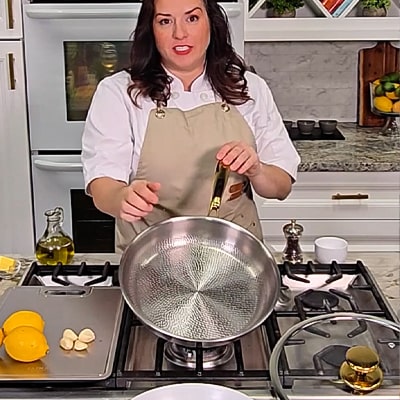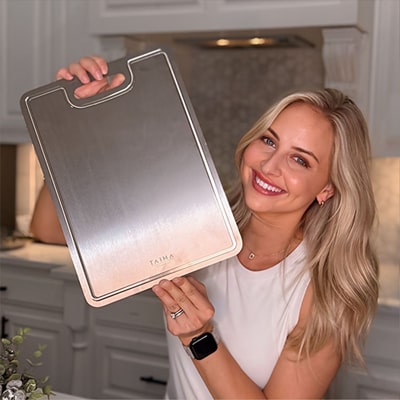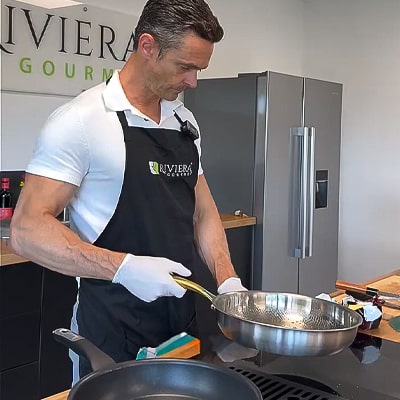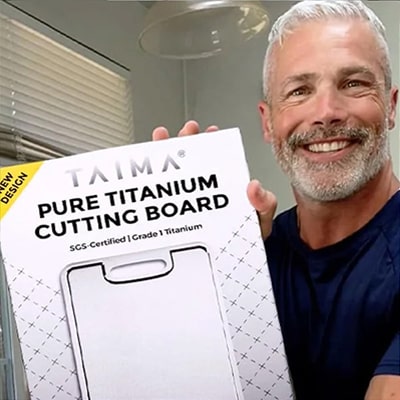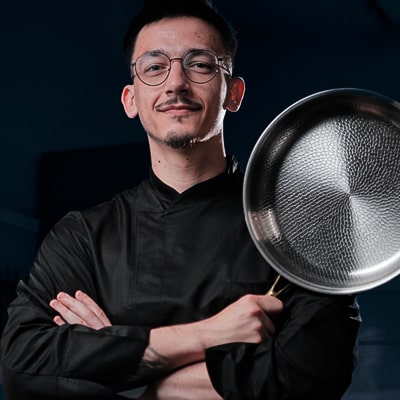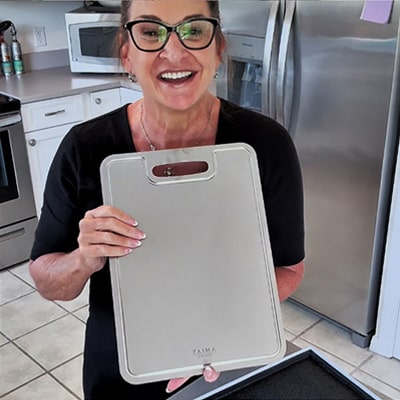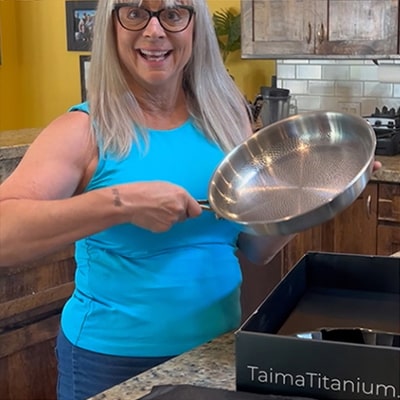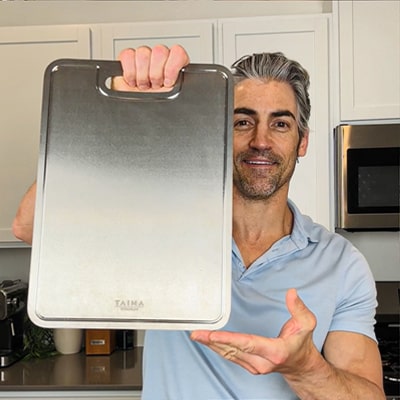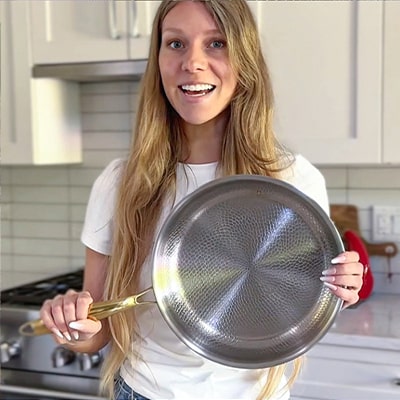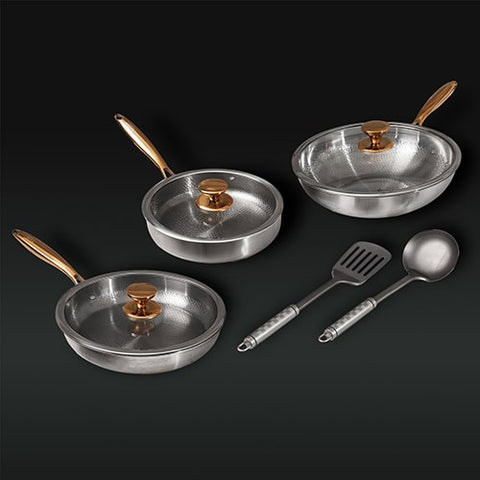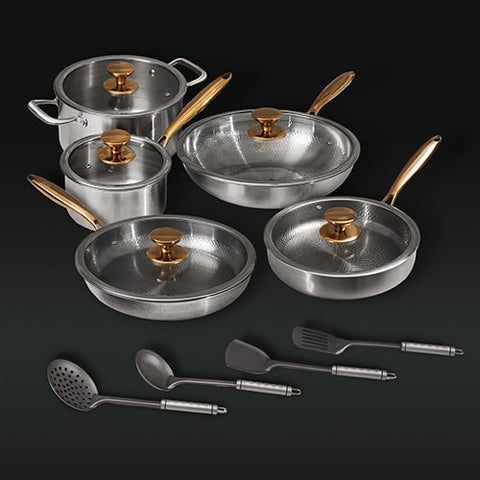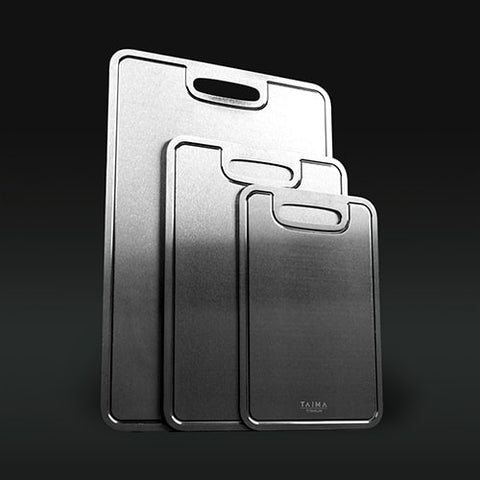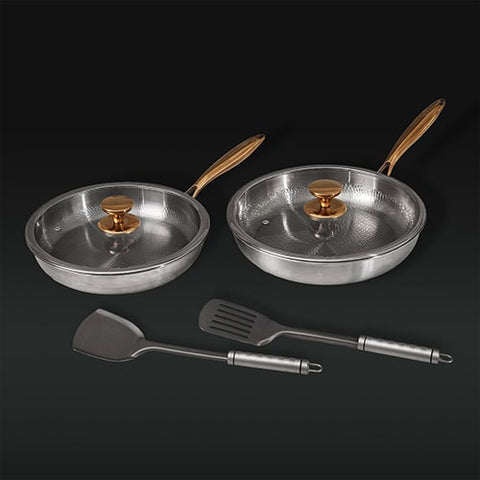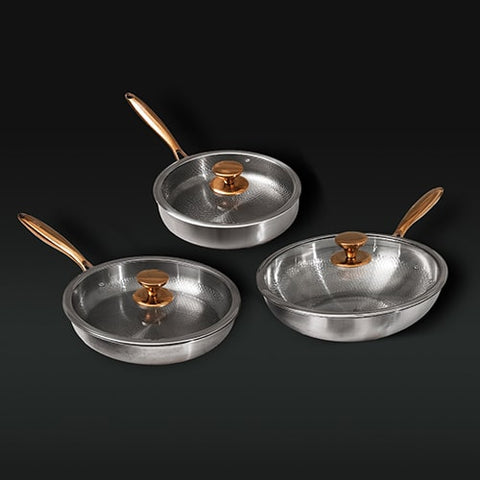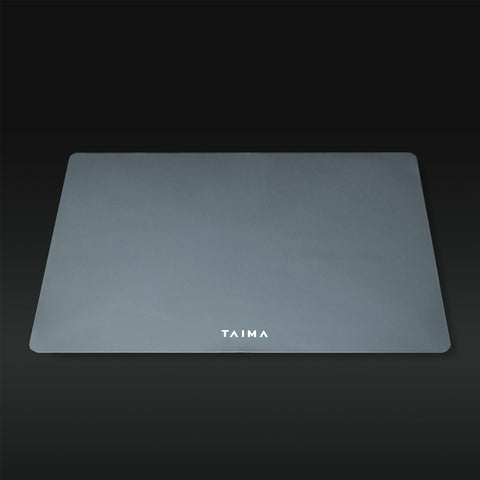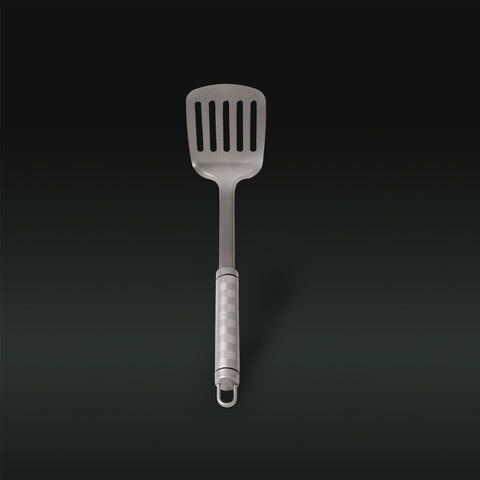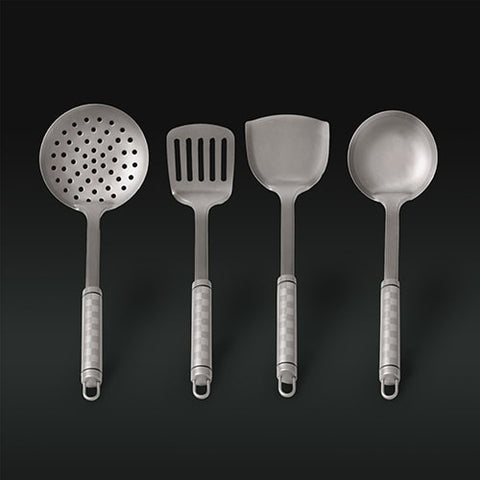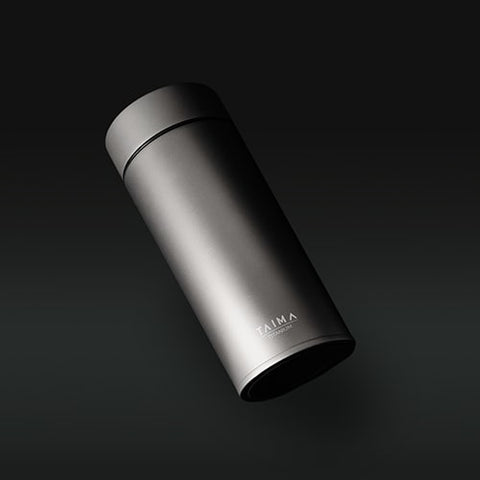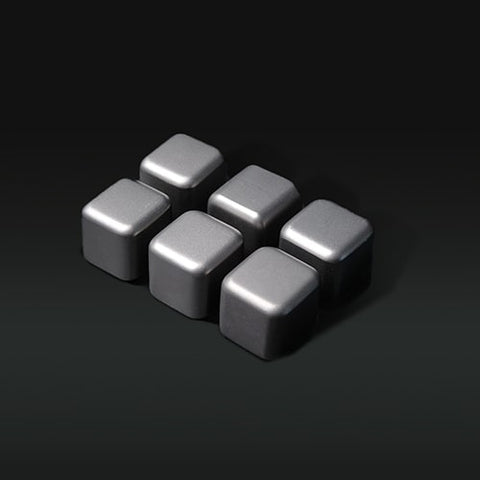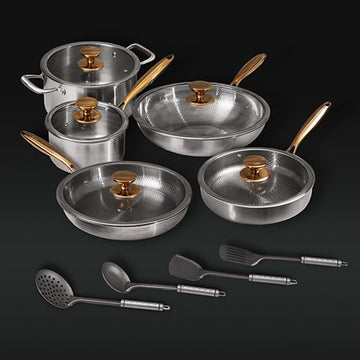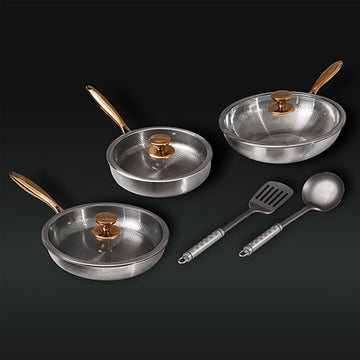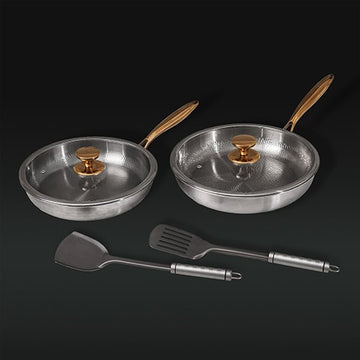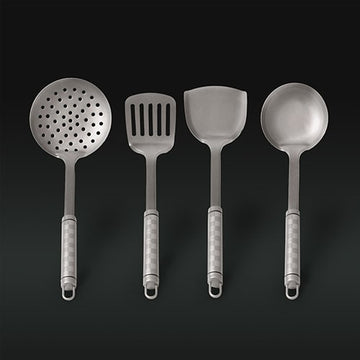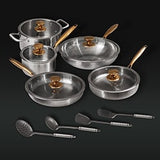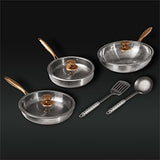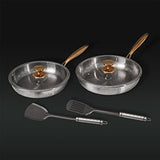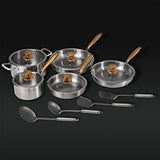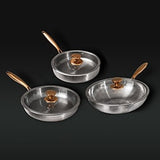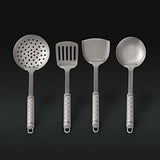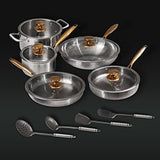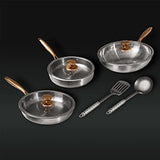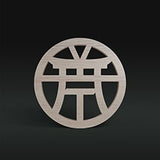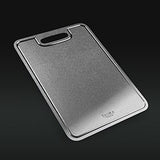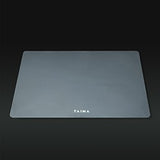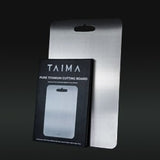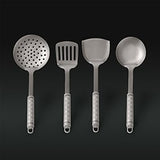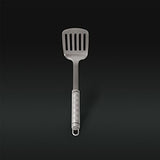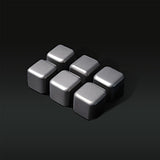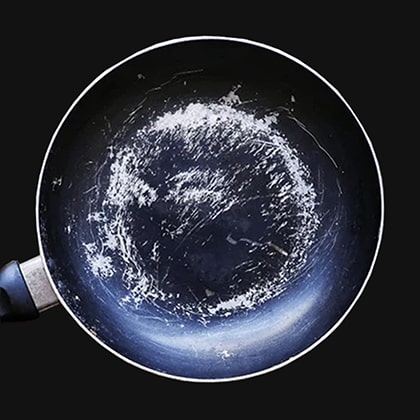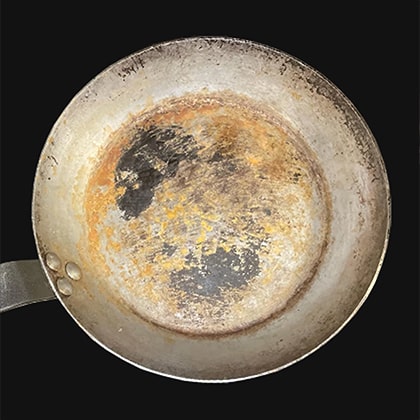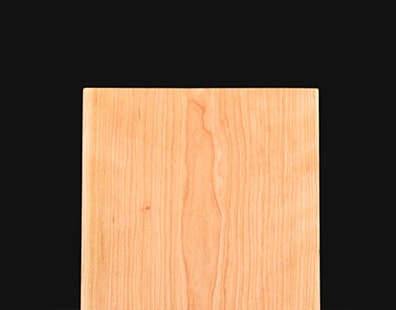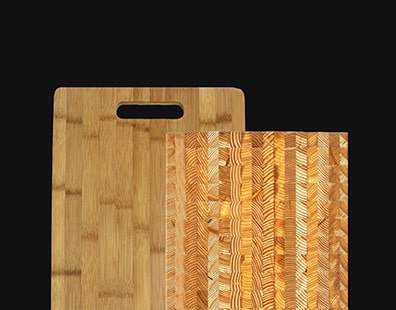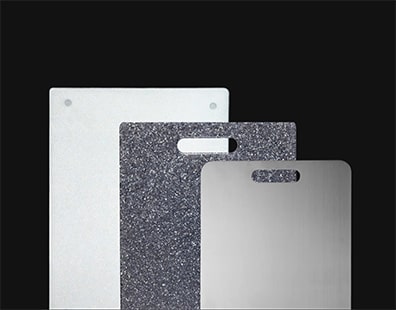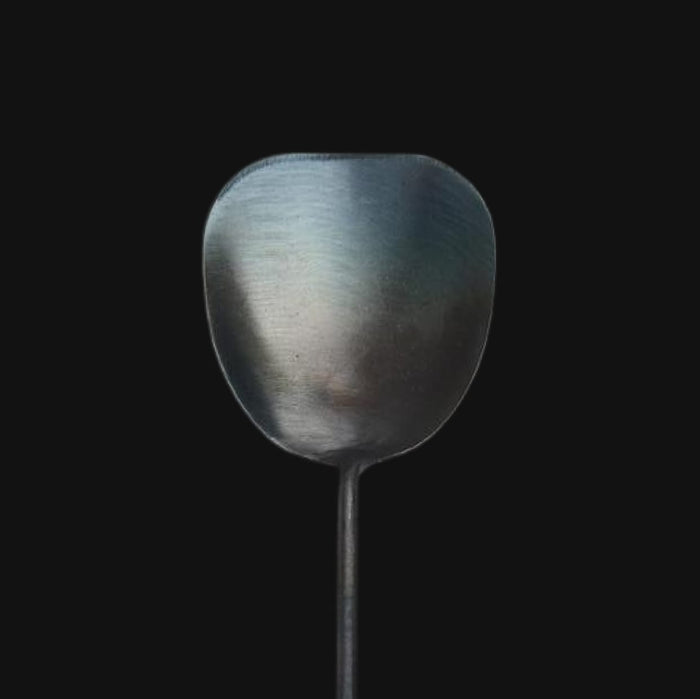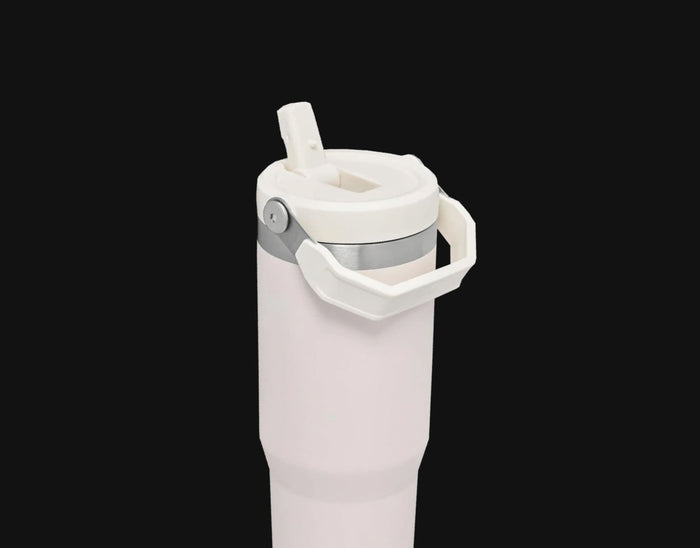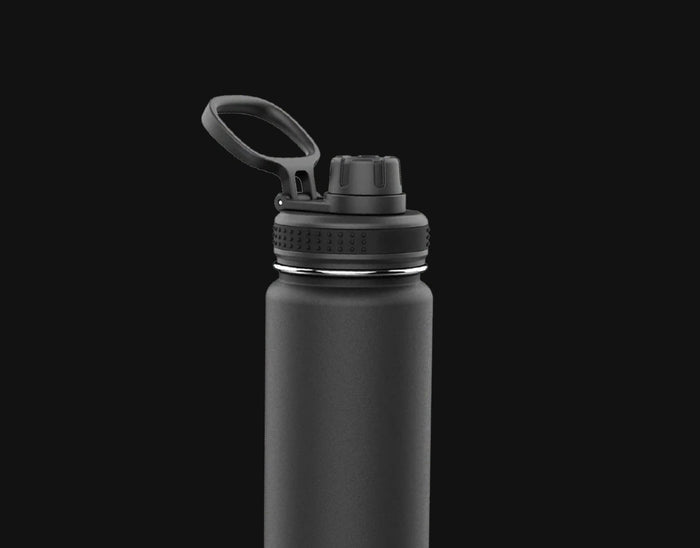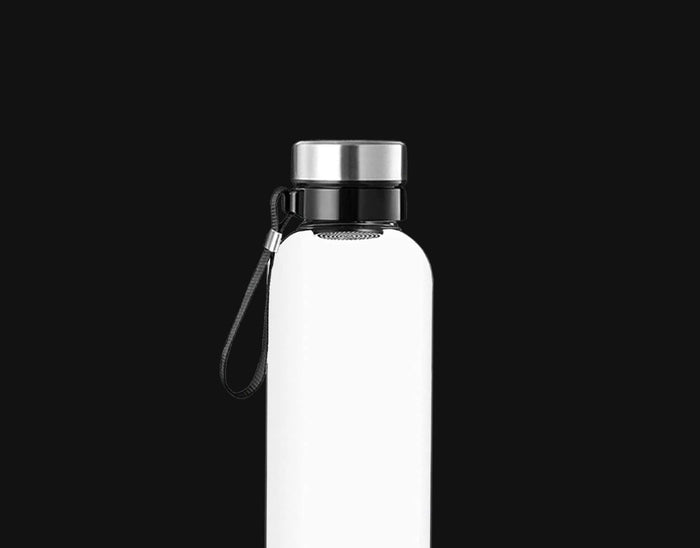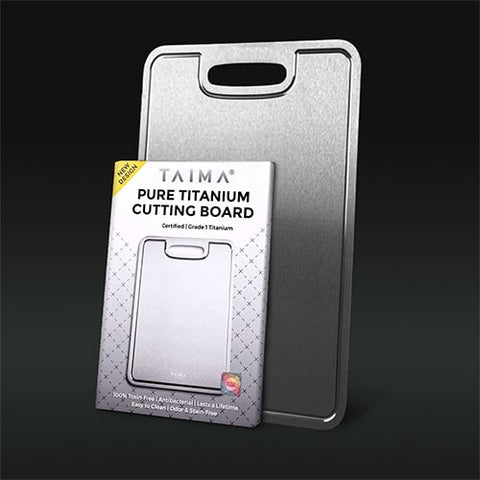 VERY LOW STOCK!
VERY LOW STOCK!
The Science Behind Titanium
Why We Chose The World’s Most Trusted Metal For Your Kitchen
Few metals in human history have earned the level of trust titanium holds.
And when you see the science behind it, you’ll understand why no other material comes close.
Let’s break it down.
What Is Titanium & Why Is It Important For Your Safety
Titanium is not just another metal. It’s one of the strongest, most resilient, and most biocompatible materials known to man.
The name itself comes from the Titans of Greek mythology - ancient gods of immense power and endurance. German chemist Martin Heinrich Klaproth gave titanium its name in 1795, recognizing its unmatched strength, resilience, and resistance to the elements.
And ever since, titanium has lived up to its name.
Trusted Where Failure Isn’t an Option
Because of its extreme durability, resistance to corrosion, and complete biocompatibility, titanium has become the gold standard in industries where human lives depend on materials never failing.
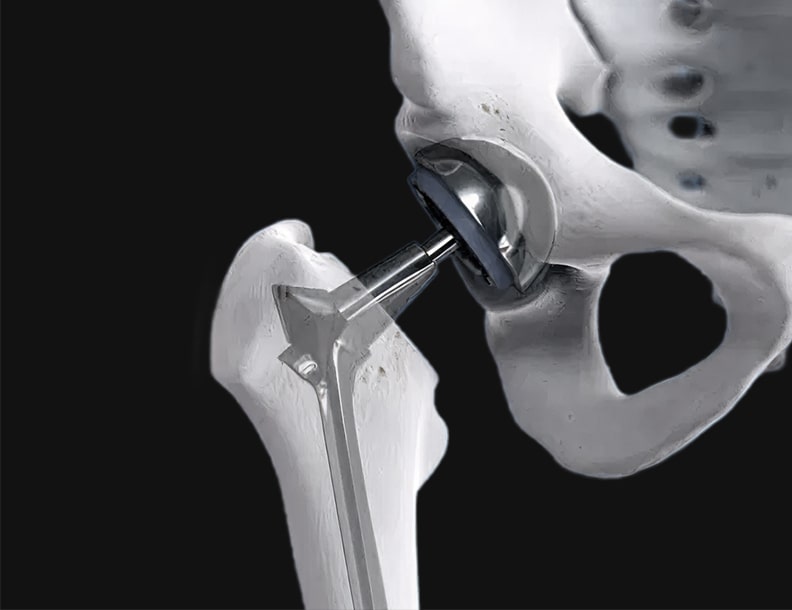
Medicine & Surgery
Since the 1960s, surgeons have relied on titanium implants - hip replacements, dental implants, surgical screws, designed to last inside the human body for decades without corroding or poisoning the patient.

Aerospace & Engineering
When the SR-71 Blackbird flew three times the speed of sound, its titanium body endured temperatures over 800°F for 30+ years without a single material failure. NASA continues to use titanium in spacecraft and rockets because in space, failure is not an option.
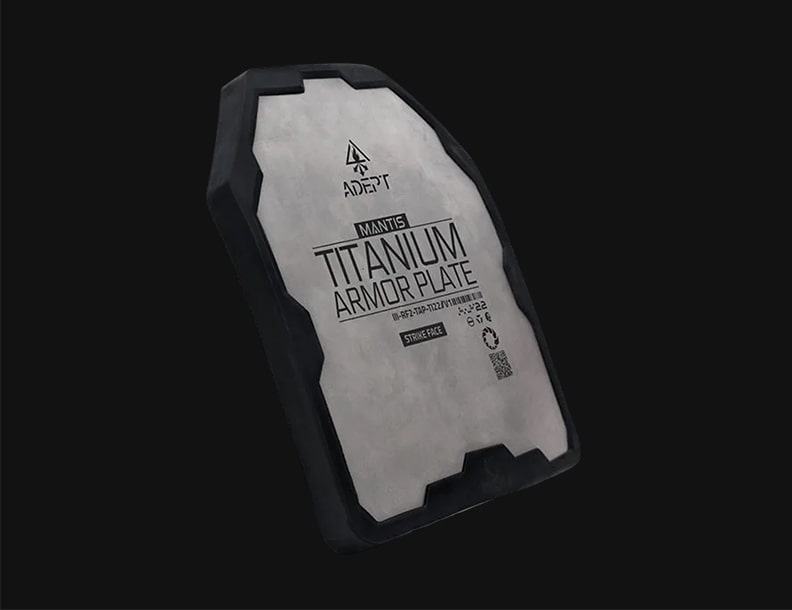
Military & Defense
Militaries around the world rely on titanium for armor, aircraft, and naval vessels because of its strength-to-weight ratio and ability to resist extreme stress, heat, and corrosion in the harshest environments.
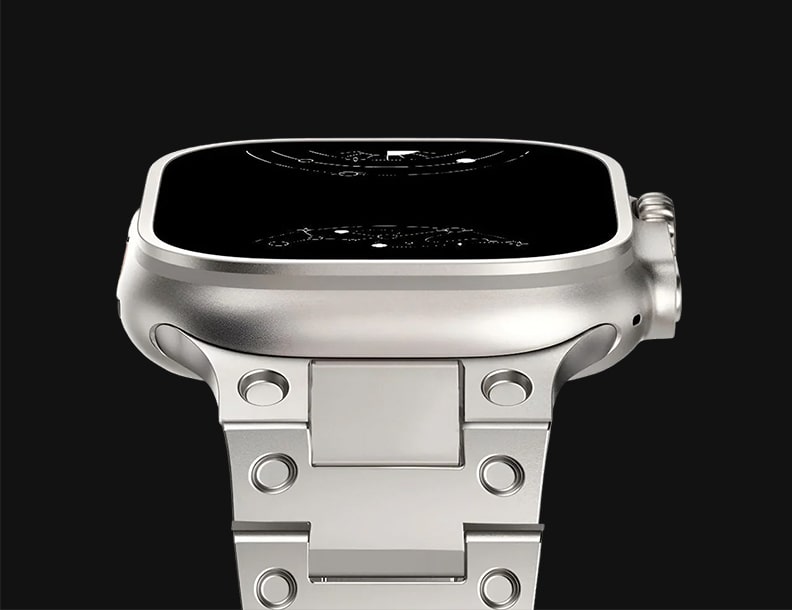
Everyday Technology
From high-performance bicycles and watches to deep-sea submarines and skyscraper reinforcements, titanium protects, strengthens, and endures where lesser materials crumble.
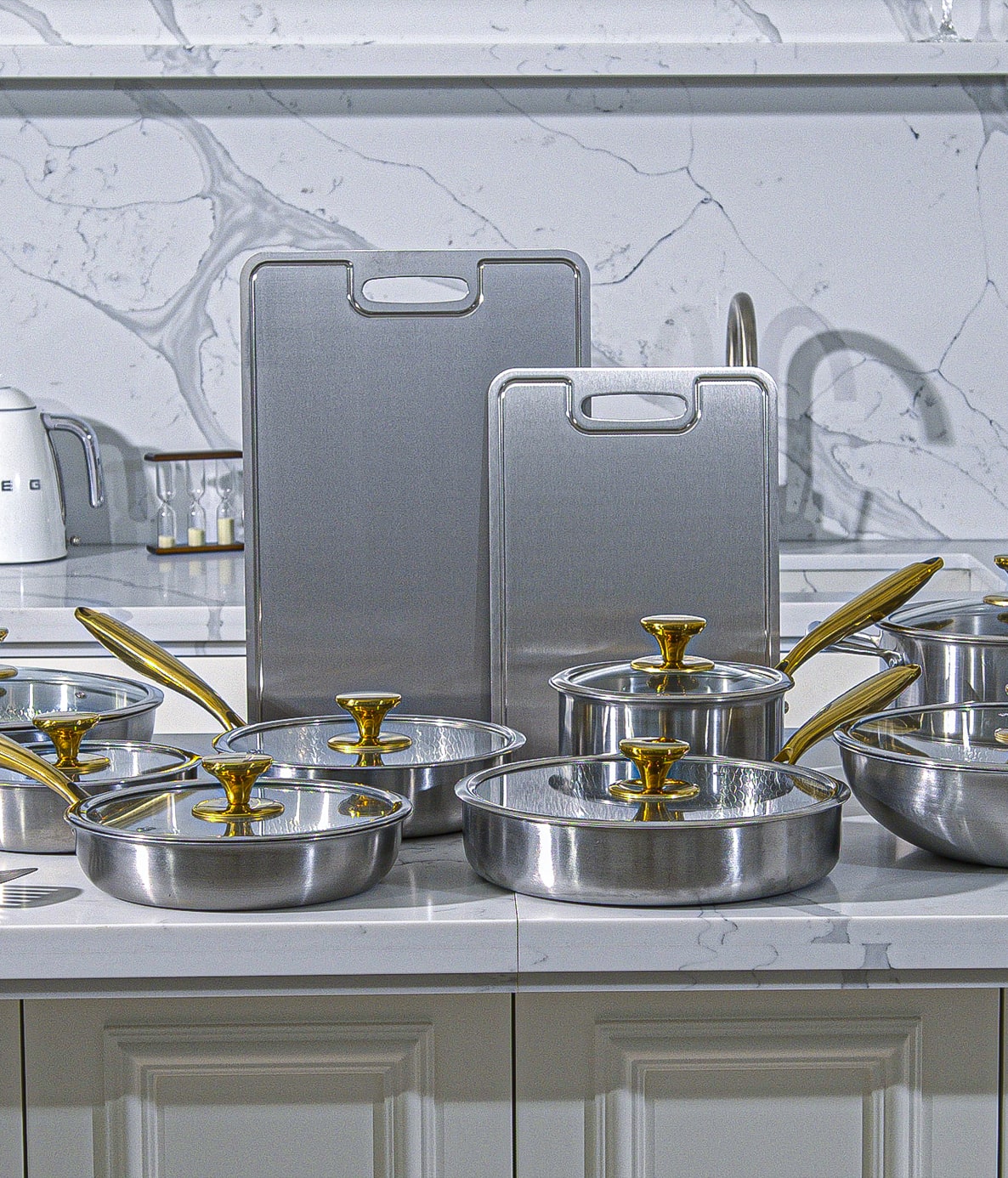
So Why Titanium Kitchenware?
What’s The Real Benefit?
To understand the value of titanium, you first need to look at the alternatives.
For decades, cookware companies have cut corners - using cheap materials, chemical coatings, and short-term fixes. Convenience came first. Safety never did.
The result? A kitchen full of tools that look fine on the surface, but quietly expose you to toxins, heavy metals, and bacteria with every meal.
That’s exactly why we built Taima® on titanium. It’s the only material that gives you absolute safety, durability, and purity, and thanks to our patented engineering, it’s just as convenient to use every day. Now, let’s take a closer look at how every other material falls short.
Titanium Isn’t Competing. It’s Replacing.
From toxin & bacteria risks to high maintenance, these “outdated” kitchenware materials just don’t measure up.
Completely Toxin-Free (By Design).
Pure titanium is chemically stable in cooking and prep conditions. It forms a stable TiO₂ passivation layer that prevents metal ions from migrating into food. There are no PFAS/PTFE coatings, no BPA/BPS or plasticizers, no nickel or chromium (like in stainless), and no aluminum cores to expose. Nothing to off-gas, flake, or leach - at any kitchen temperature.
It’s the most biocompatible metal for the human body.
That’s why surgeons trust it in the body. It doesn’t break down, flake, or leach toxins. It’s as food-safe as it gets.
It naturally kills bacteria (Extremely Hygienic).
Titanium’s dense, non-porous surface leaves nowhere for bacteria to hide. Just a quick clean, and it’s like new again.
It never rusts or degrades.
Steel corrodes because oxygen turns it into rust. Titanium reacts differently: it forms titanium dioxide, an ultra-stable layer that works like permanent armor - it actually strengthens over time.
It’s completely non-reactive & Acid-resistant.
Tomatoes, citrus, vinegar, oils - all harmless against titanium. While other metals leach nickel, chromium, or aluminum into your food, titanium stays calm and unreactive.
It withstands extreme heat day after day.
Titanium doesn’t warp, crack, or fatigue under extreme temperature changes. Where wood
splits and plastics degrade, titanium remains solid.
It preserves nutrients.
Reactive metals can strip vitamins like Vitamin C from food through oxidation. Titanium protects nutrients intact, so your meals deliver what nature intended.
It endures stress.
Thanks to its unique crystal structure, titanium becomes more resistant with every cut, impact, or use. Instead of weakening, it hardens.
It outlasts generations.
One titanium board or pan replaces dozens of wood, plastic, or coated alternatives. It’s not just long-lasting, it’s heirloom quality.
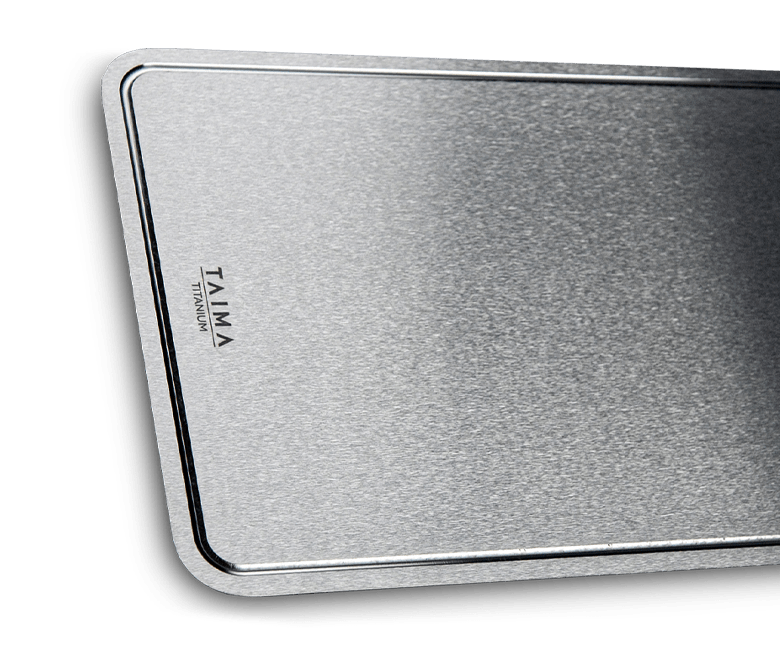
Titanium’s Secret Advantage:
A Molecular Structure Unlike Any Other
Every material breaks down in its own way - wood absorbs and cracks, plastic shaves into microplastics, and steel corrodes under heat and acids - but titanium’s crystal structure resists all of it.
Its atoms arrange in what’s called a Hexagonal Close-Packed (HCP) crystal structure - think of it like an interlocking 3D puzzle where every piece supports the others. There are no weak links.
Here’s why that matters in your kitchen:
Stress Doesn’t Concentrate, It Disperses.
When your knife hits titanium, the force doesn’t crack or splinter like wood. Instead, it spreads evenly across thousands of tightly packed crystal boundaries. The result? Small, shallow surface marks that wipe clean - not deep bacteria-trapping grooves.
It gets tougher the more you use it.
Titanium has a rare property called work-hardening. Every time pressure is applied (like your knife edge striking the board), the atoms actually shift and rearrange to make that exact spot more resistant next time. Most materials degrade under stress. Titanium improves.
Durability without compromise.
This unique structure explains why titanium doesn’t fatigue, doesn’t corrode, and doesn’t fracture the way other kitchen materials do. It simply endures - getting stronger, cleaner, and safer with every cut.
Titanium Was Never Meant For The Kitchen, Until Now
For centuries, titanium was reserved for places where lives and missions depended on it. Surgeons. Astronauts. Engineers. Soldiers.
Nobody dared to bring it into the kitchen, because it was too difficult & too expensive…
But that’s exactly why we did it.
Taima® exists because your health deserves the same uncompromising standard as a spacecraft, a life-changing implant, or a jet that defies gravity.
This isn’t kitchenware that “gets the job done.” It’s kitchenware that protects, endures, and redefines what’s possible in your home.
You’ll never look at a pan, board, or utensil the same way again.
Trusted By 500,000+ Kitchens Worldwide
